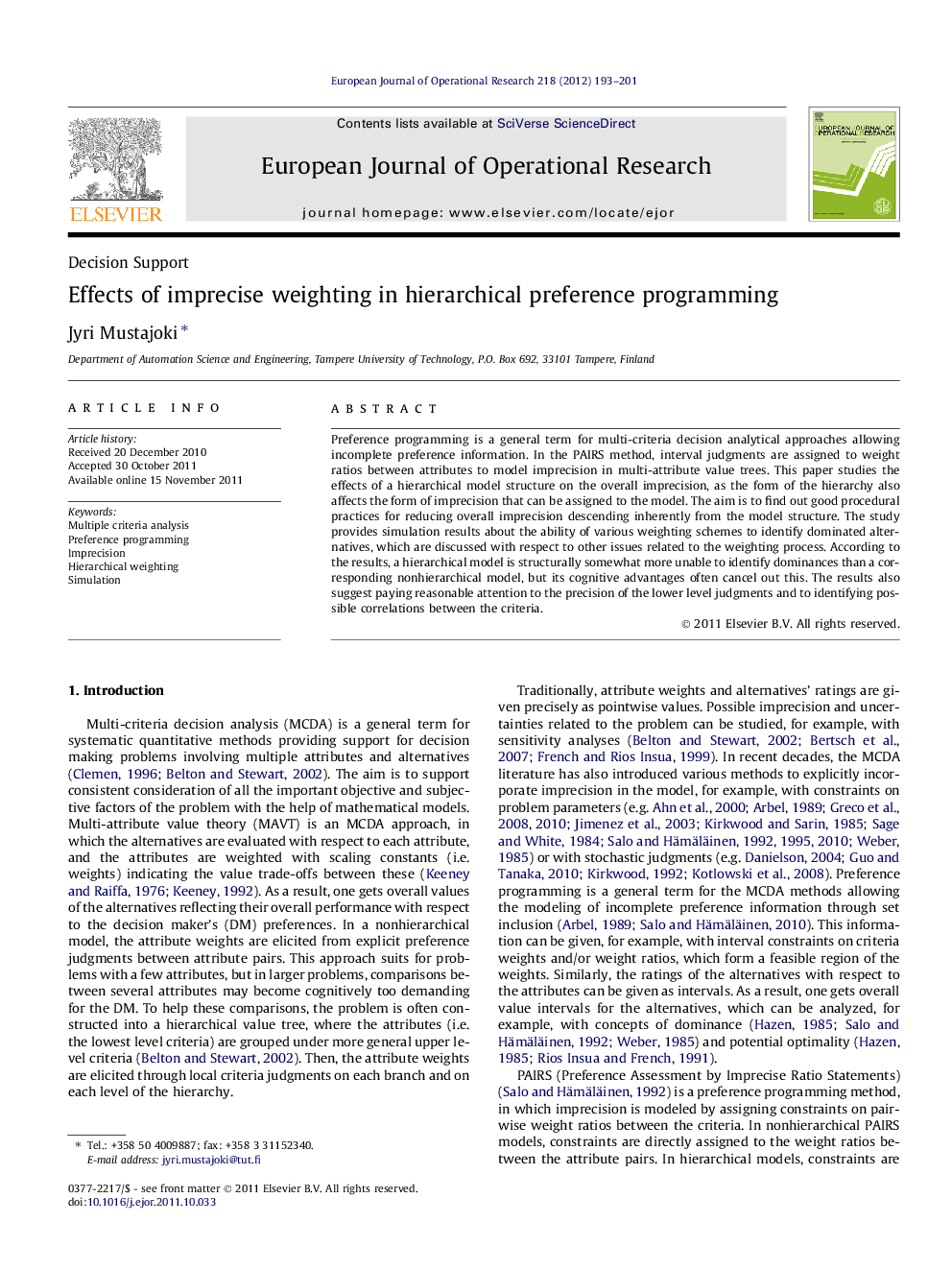| Article ID | Journal | Published Year | Pages | File Type |
|---|---|---|---|---|
| 476904 | European Journal of Operational Research | 2012 | 9 Pages |
Preference programming is a general term for multi-criteria decision analytical approaches allowing incomplete preference information. In the PAIRS method, interval judgments are assigned to weight ratios between attributes to model imprecision in multi-attribute value trees. This paper studies the effects of a hierarchical model structure on the overall imprecision, as the form of the hierarchy also affects the form of imprecision that can be assigned to the model. The aim is to find out good procedural practices for reducing overall imprecision descending inherently from the model structure. The study provides simulation results about the ability of various weighting schemes to identify dominated alternatives, which are discussed with respect to other issues related to the weighting process. According to the results, a hierarchical model is structurally somewhat more unable to identify dominances than a corresponding nonhierarchical model, but its cognitive advantages often cancel out this. The results also suggest paying reasonable attention to the precision of the lower level judgments and to identifying possible correlations between the criteria.
► We study the effects of imprecision in hierarchical preference programming models. ► Various non-hierarchical and hierarchical weighting schemes considered. ► Simulation results on the ability of weighting schemes to identify dominances. ► Results indicate a hierarchical model not having severe structural weaknesses. ► Results suggest paying enough attention to the precision of lower level judgments.
